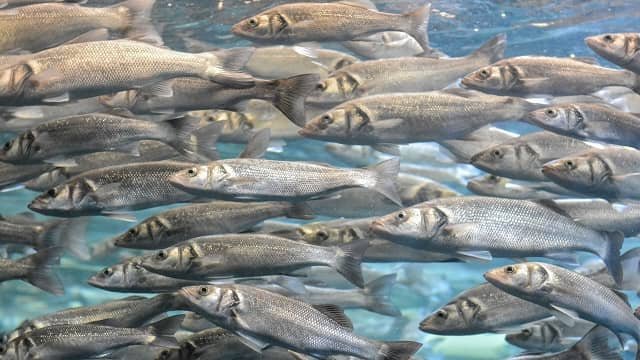
The European sea bass (Dicentrarchus labrax) is a significant player in Mediterranean aquaculture, but disease outbreaks threaten profits. Traditionally, antibiotics have been used to combat these issues, but concerns about antibiotic resistance are increasing.
A study conducted by researchers from the National Institute of Oceanography and Fisheries (NIOF), King Saud University (Saudi Arabia), University of Galway (Ireland), Al-Azhar University (Egypt), and Mansoura University (Egypt) explores the potential of using powdered herb seeds as a natural dietary supplement. Fennel, fenugreek, and anise seeds may seem like surprising additions to a fish’s diet, but the results are promising!
The Search for a Sustainable Solution: Natural Alternatives
The use of herbs and medicinal plants in the diet of aquatic species (tilapia, abalone, etc.) is becoming common due to their benefits. The study investigated the potential of using powdered fennel, fenugreek, and anise seeds as dietary supplements for European sea bass. These herbs possess a variety of beneficial properties:
- Immunomodulators: They can help regulate the fish’s immune system, making them less susceptible to diseases.
- Anti-inflammatory and Anti-cancer: These properties can further contribute to the overall health of the fish.
Why Herbs for Sea Bass?
Traditional fish feeds often lack the nutrient diversity naturally found in the wild. This study investigates whether incorporating powdered herb seeds can:
- Improve the nutritional value of fish feed.
- Enhance the health and performance of sea bass.
The Results: A Recipe for Success
Diets fed to sea bass containing 5 g/kg of powdered herb seeds showed significant improvements in several key areas:
- Faster Growth: The fish gained weight more efficiently compared to the control group.
- Better Feed Conversion: They utilized their food more effectively and required less feed to grow.
- Stronger Immune Response: The herb-based supplements increased immune cell activity and improved overall immune function.
- Healthier Gut Microbiome: Levels of beneficial bacteria increased, while harmful bacteria like Vibrio spp. decreased. This suggests a prebiotic effect of the herb powders.
- Improved Overall Health: Indicators such as lymphocyte count, globulin levels, and lipid profile showed positive changes.
No Harm, All Benefit
It is important to note that the study found no negative impacts on the overall health or organ function of the fish. Additionally, the proximate body composition (proteins, fats, etc.) remained unchanged, suggesting that the herbal supplement does not compromise the nutritional value of the fish.
Furthermore, the study suggests that the herb mixture acts as a prebiotic and promotes the growth of beneficial gut bacteria. This not only enhances digestion but also strengthens the fish’s immune system.
Conclusion
“These findings emphasize that seed powders can improve growth performance, biometric indices, innate immunity, lipid metabolism, and modulate the gut microbiota without adverse effects on the hematobiochemical profile of the fish,” the researchers concluded.
In this regard, the research highlights the potential of using natural ingredients like powdered herb seeds to improve the health and performance of European sea bass in aquaculture, offering a safe and effective way to:
- Promote fish growth and health.
- Reduce dependence on antibiotics and other artificial additives.
- Contribute to a more sustainable aquaculture industry.
Additional research can explore the optimal dosage and specific herb mixtures for different fish species and dietary needs. By harnessing the power of nature, we can create a healthier and more sustainable future for aquaculture.
Contact
Ahmed M. El-Sebaey
Department of Clinical Pathology, Faculty of Veterinary Medicine, Mansoura University
Mansoura 35516, Egypt
Email: dr_sebaey@mans.edu.eg
Reference (open access)
Ashry, A. M., Habiba, M. M., Abdel-Warith, A. A., Younis, E. M., Davies, S. J., Elnakeeb, M. A., Abdelghany, M. F., El-Zayat, A. M., & El-Sebaey, A. M. (2024). Dietary effect of powdered herbal seeds on zootechnical performance, hemato-biochemical indices, immunological status, and intestinal microbiota of European sea bass (Dicentrarchus labrax). Aquaculture Reports, 36, 102074. https://doi.org/10.1016/j.aqrep.2024.102074

